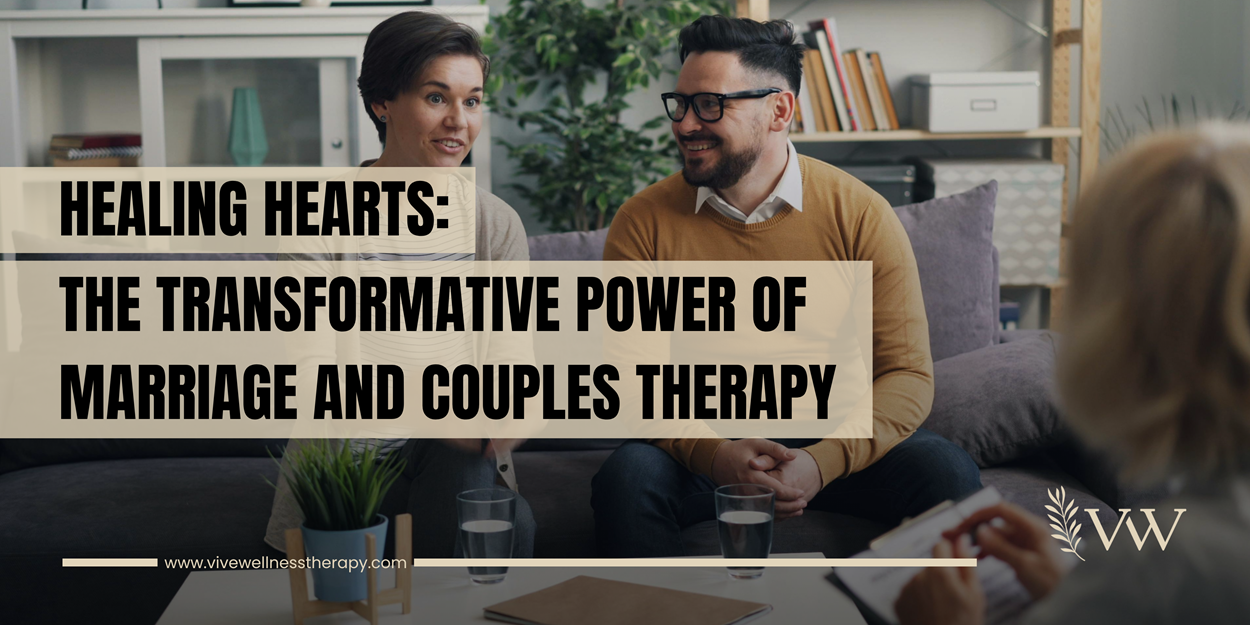Healing Hearts: The Transformative Power of Marriage and Couples Therapy
Marriage and Couples Therapy
Introduction to Marriage Counselling
Marriage and relationships are a journey of growth, connection, and shared experiences. However, even the most committed couples can face challenges that strain their bond. Seeking couples, pre-marital, or marriage counselling can be a pivotal step toward healing and strengthening your relationship.
What is Couples Counselling?
Couples counselling provides a structured environment where partners can explore issues with a trained psychotherapist. It's not about assigning blame but about fostering open communication and mutual understanding. Therapists often use techniques such as the speaker-listener exercise, emotion-focused and attachment-based interventions, and conflict resolution strategies to enhance dialogue and empathy between partners.
Benefits of Counselling for Husband and Wife
Couples may consider therapy when facing:
Persistent conflicts
Emotional disconnection
Trust issues, including infidelity
Major life transitions causing stress
Communication breakdowns
Intimacy concerns
Mental Health Benefits
Engaging in counselling for partners can enhance individual and family mental well-being. Addressing unresolved conflicts and improving communication often reduces anxiety and depression, while fostering emotional safety and validation. Even couples not in crisis can benefit from therapy to strengthen their bond or to prepare for life transitions such as marriage, family planning, co-parenting, health changes, relocation, or bereavement.
What to Expect in Couples Therapy
Couples Therapy
In initial sessions, Vive Wellness Psychotherapists focus on understanding each partner's perspective and establishing relationship goals. Through guided discussions and exercises, couples identify negative patterns and develop healthier communication strategies, rebuild trust, enhance intimacy, and create a collaborative approach to conflict resolution.
Couples Therapy Modalities
There are various evidence-based approaches to couples counselling. Therapists often tailor sessions to the couple’s unique needs. Popular modalities include:
The Gottman Method: Focuses on building friendship, managing conflict, and creating shared meaning. Exercises increase emotional attunement and repair relationship ruptures.
Imago Relationship Therapy: Explores unconscious patterns and childhood influences affecting current relationships. It uses structured dialogues to enhance empathy and transform conflict into connection.
Psychodynamic Attachment Therapy: Examines how early attachment experiences shape adult relationship patterns. It helps couples understand triggers, repair relational wounds, and develop secure attachment behaviors.
Sex and Couples Therapy: Addresses sexual concerns alongside relational dynamics, combining communication exercises with strategies to enhance physical and emotional intimacy.
Therapists often integrate multiple modalities to create personalized sessions based on couple goals and challenges.
Online Relationship Therapy
Online relationship therapy offers flexibility and convenience, allowing couples to attend sessions from anywhere – be it in the same space or separately. It is ideal for busy schedules or couples in different locations. Research shows online therapy can be as effective as in-person sessions in improving relationship satisfaction.
Final Thoughts on Marriage and Couples Counselling
Seeking couples or marriage counselling is a proactive step towards a healthy, fulfilling relationship. Therapy equips couples with the tools to navigate challenges, enhance communication, and deepen their connection. Whether facing specific issues or wanting to strengthen their bond, couples counselling and online relationship therapy are invaluable resources.
Reach out to Vive Wellness Psychotherapy today to start your journey. Seeking help is a sign of strength and commitment to your relationship.


